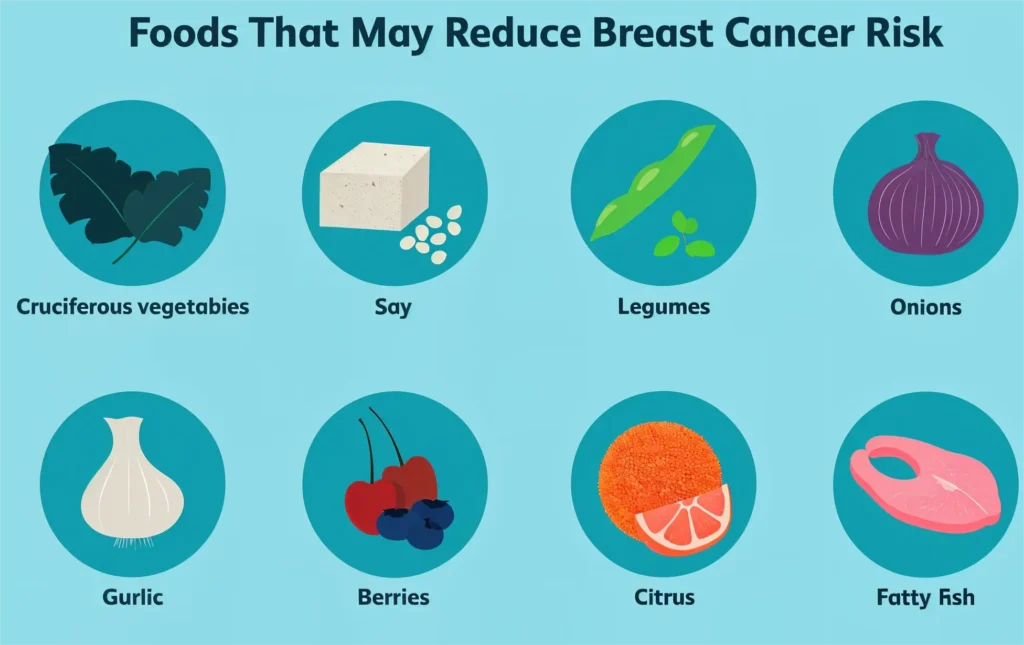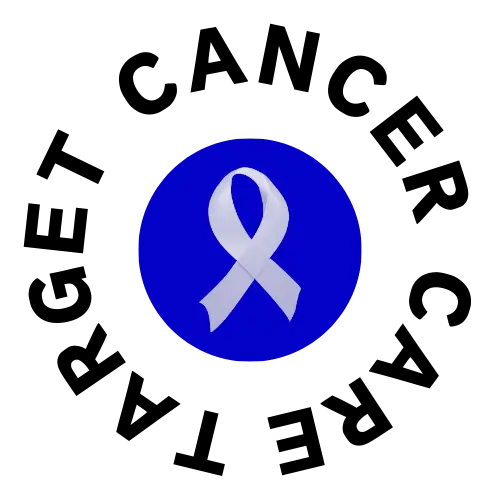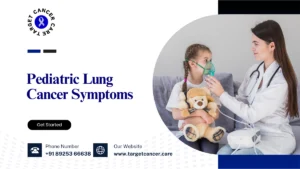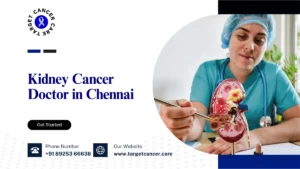Diet plays a vital role in the journey of breast cancer recovery. While some foods can support healing and overall well-being, others can be harmful. Knowing what to eat and what to avoid can help maintain health and energy levels. The right dietary choices can reduce inflammation and potentially improve treatment outcomes. In this blog, we’ll focus on breast cancer foods to avoid and explore options like the best fruits for breast cancer patients and beneficial diet plans. By the end of this guide, you’ll have the tools to make better dietary decisions.
Breast Cancer Foods to Avoid
Certain foods can negatively affect breast cancer recovery or overall health. These include alcohol, fast foods, fried items, processed meats, refined carbs, and added sugars. Avoiding these foods helps reduce inflammation, improve treatment outcomes, and support a healthier body. By focusing on better alternatives and understanding dietary impacts, you can help your body recover effectively.
Alcohol
Alcohol is one of the primary items listed under breast cancer foods to avoid. Studies suggest that even moderate alcohol consumption can increase the risk of breast cancer recurrence. Alcohol raises estrogen levels and contributes to inflammation, which may negatively impact recovery.
Key reasons to avoid alcohol:
- It disrupts hormone balance.
- It can suppress immune function, making recovery harder.
- It introduces toxins that burden your liver.
Healthier alternatives:
- Replace alcohol with herbal teas, infused water, or sparkling non-alcoholic drinks.
Fast Foods
Fast foods are convenient but pose significant risks for breast cancer patients. These are high in unhealthy fats, sodium, and preservatives that can increase inflammation.
Why avoid fast foods:
- They often contain trans fats, linked to chronic illnesses.
- High sodium content can lead to water retention and increased blood pressure.
Better options:
- Opt for home-cooked meals with fresh ingredients.
- Choose snacks like nuts or fruits for quick hunger fixes.
Fried Foods
Fried foods are another significant group under breast cancer foods to avoid. The frying process creates harmful substances like acrylamide, which has been linked to cancer.
Risks of fried foods:
- They are calorie-dense, leading to weight gain.
- They contain unhealthy oils that raise cholesterol levels.
Healthier swaps:
- Bake or air-fry food instead.
- Use olive or avocado oil for light sautéing.

Red and Processed Meats
Red and processed meats like bacon, sausages, and hot dogs contain high levels of preservatives and unhealthy fats.
Why they’re harmful:
- These meats are linked to increased estrogen levels.
- Processed meats often contain nitrates, a known carcinogen.
Better protein options:
- Lean chicken, fish, and plant-based proteins like lentils and chickpeas.
Added Sugar
Sugar is one of the worst culprits on the list of breast cancer foods to avoid. It contributes to weight gain and can feed cancer cells.
Negative effects of added sugar:
- Leads to insulin resistance.
- Can cause inflammation of breast cancer.
Healthier alternatives:
- Sweeten your food with natural options like honey or fruits.
Refined Carbs
Refined carbs, such as white bread, pasta, and pastries, provide empty calories and spike blood sugar levels.
Why avoid refined carbs:
- They lack essential nutrients.
- They contribute to inflammation and fatigue.
Healthier alternatives:
- Whole grains like quinoa, brown rice, and oats.
7-Day Meal Plan for Breast Cancer Patients
A well-balanced diet is essential for breast cancer patients to maintain strength, support recovery, and manage treatment side effects. This 7-day meal plan includes nutrient-rich foods that promote healing and overall well-being.
Day 1
- Breakfast: Oatmeal with flaxseeds and berries
- Lunch: Grilled salmon with quinoa and steamed broccoli
- Snack: Greek yogurt with almonds
- Dinner: Lentil soup with mixed greens
Day 2
- Breakfast: Scrambled eggs with spinach and whole-grain toast
- Lunch: Grilled chicken with brown rice and sautéed zucchini
- Snack: Apple slices with peanut butter
- Dinner: Baked sweet potato with black beans and avocado
Day 3
- Breakfast: Smoothie with banana, spinach, and almond milk
- Lunch: Chickpea salad with olive oil dressing
- Snack: Handful of walnuts and dried apricots
- Dinner: Steamed fish with roasted carrots and quinoa
Day 4
- Breakfast: Whole-wheat pancakes with honey and chia seeds
- Lunch: Grilled tofu with stir-fried vegetables
- Snack: Carrot sticks with hummus
- Dinner: Mushroom and barley soup with a side of mixed greens
Day 5
- Breakfast: Avocado toast with boiled eggs
- Lunch: Brown rice with grilled shrimp and asparagus
- Snack: Cottage cheese with flaxseeds
- Dinner: Quinoa and vegetable stir-fry
Day 6
- Breakfast: Chia pudding with mixed berries
- Lunch: Turkey and spinach wrap with whole wheat tortillas
- Snack: Roasted chickpeas
- Dinner: Baked tofu with wild rice and steamed bok choy
Day 7
- Breakfast: Scrambled tofu with mushrooms and whole-grain toast
- Lunch: Grilled fish with quinoa and roasted bell peppers
- Snack: Handful of almonds and fresh fruit
- Dinner: Lentil stew with sautéed spinach
In addition to a nutritious diet, incorporating breast cancer diet and exercise into daily routines helps manage treatment side effects and improve overall health. Exercise such as walking, yoga, and light strength training can support recovery and enhance well-being.
Diet Types
Keto Diet
The keto diet focuses on high fats and low carbs, which some studies suggest could potentially slow cancer cell growth. When following the keto diet, including the best fruits for breast cancer patients, like berries, can provide essential antioxidants that support overall health. While the keto diet may offer benefits, it’s crucial to consult a doctor before starting any new diet plan, especially during cancer treatment. Integrating breast cancer diet and exercise principles can enhance the effects of the diet and improve recovery. It’s also important to remember breast cancer foods to avoid, such as processed foods and high-sugar items, to maintain optimal health.
Plant-Based Diet
A plant-based diet emphasizes fruits, vegetables, and whole grains. With a focus on healthy options, it supports healing. Following a 7 day meal plan for breast cancer patients, packed with nutritious meals, can optimize your recovery.
Mediterranean Diet
Rich in healthy fats like olive oil and omega-3s, the Mediterranean diet is highly beneficial for breast cancer patients. This diet is not only heart-healthy but also supports overall well-being, making it an excellent choice for those undergoing treatment or in recovery. When paired with moderate exercise, the Mediterranean diet can offer optimal results, boosting energy levels and enhancing immune function. Combining breast cancer diet and exercise principles helps improve the body’s response to treatment and reduces the risk of recurrence. Additionally, it’s important to know breast cancer foods to avoid, such as processed meats and sugary foods, to support a healthier lifestyle and long-term recovery.
Conclusion
Understanding and following a list of breast cancer foods to avoid can significantly impact recovery by reducing inflammation and supporting overall health. Alongside a balanced diet, including the best fruits for breast cancer patients, like berries and citrus fruits, helps provide antioxidants that promote healing. Adopting plans like the 7 day meal plan for breast cancer patients ensures a structured approach to nutrition, which can improve energy levels and aid in recovery. Remember, small dietary changes can bring long-term benefits, helping you stay strong and healthy throughout your journey. By following these guidelines, you’ll enhance your ability to manage your health and well-being during breast cancer treatment.
Read also Breast Cancer Lifestyle Changes.




